
清大社會所碩士。自由文字工作者。
Reading 'Season of the Sunflowers': We Hope 'It Could Happen' is a thing of the past
This article was also published on Medium such as water echoes .
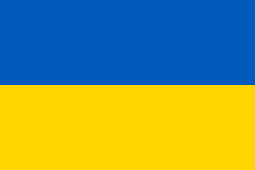
Vodimir Mechenko said: "In Ukraine, everything can happen. We hope that this 'everything can happen' is a thing of the past. And now, after the Revolution in Independence Square, we will not go back to the old one Ukraine. We hope that people will start to switch mindsets and ways of thinking. That's why I picked up the chisel again...I think it's worth doing it for them."
This is the last chapter of the fifth chapter, "Life and Death", published by Polish reportage writer Igor T. Mechik in 2015, "The Season of the Sunflower" (Taiwan translation was published by Acropolis in 2014, translated by Lin Weiyun). a paragraph. Extensive quotations of interviewees, allowing readers to substitute the thoughts and emotions of each character, is a feature of this book, and it is also an excellent reporting style that presents the complex history and situation of Ukraine.
"Season of Sunflowers" is based on the theme of the 2017 war in eastern Ukraine. The author interviewed a variety of people: the volunteers who participated in the Revolution in Independence Square, the blind Ukrainian right-wing spiritual leader, the "fat cat peninsula" dominated by robbers Residents of Crimea, the old man who ties the national flag on Independence Square, the social activist who "traces" the missing during the revolution, the artist who builds the "Bakovo Cemetery" with the value of inclusiveness, the employees under the "Millionaire" , the Donbas miners who witnessed the degeneration of the eastern mine industry, suffered and deceived, and how the family with a doctorate in history from Moscow University lived a poor life in Dunbas.
He also went deep into the turbulent city of Donnetsk, talked to the headmaster who was obsessed with his children, and talked with anxious but pretendingly calm separatist youths; In the mold-filled air-raid shelter of No. 20 Transport Street, women and children who are constantly struggling with hunger, disease, and life and death, who still get up every day to support each other without knowing where they are going; quote a Russian who "The war took everything from me" words, and, most frightening, the testimony of children.
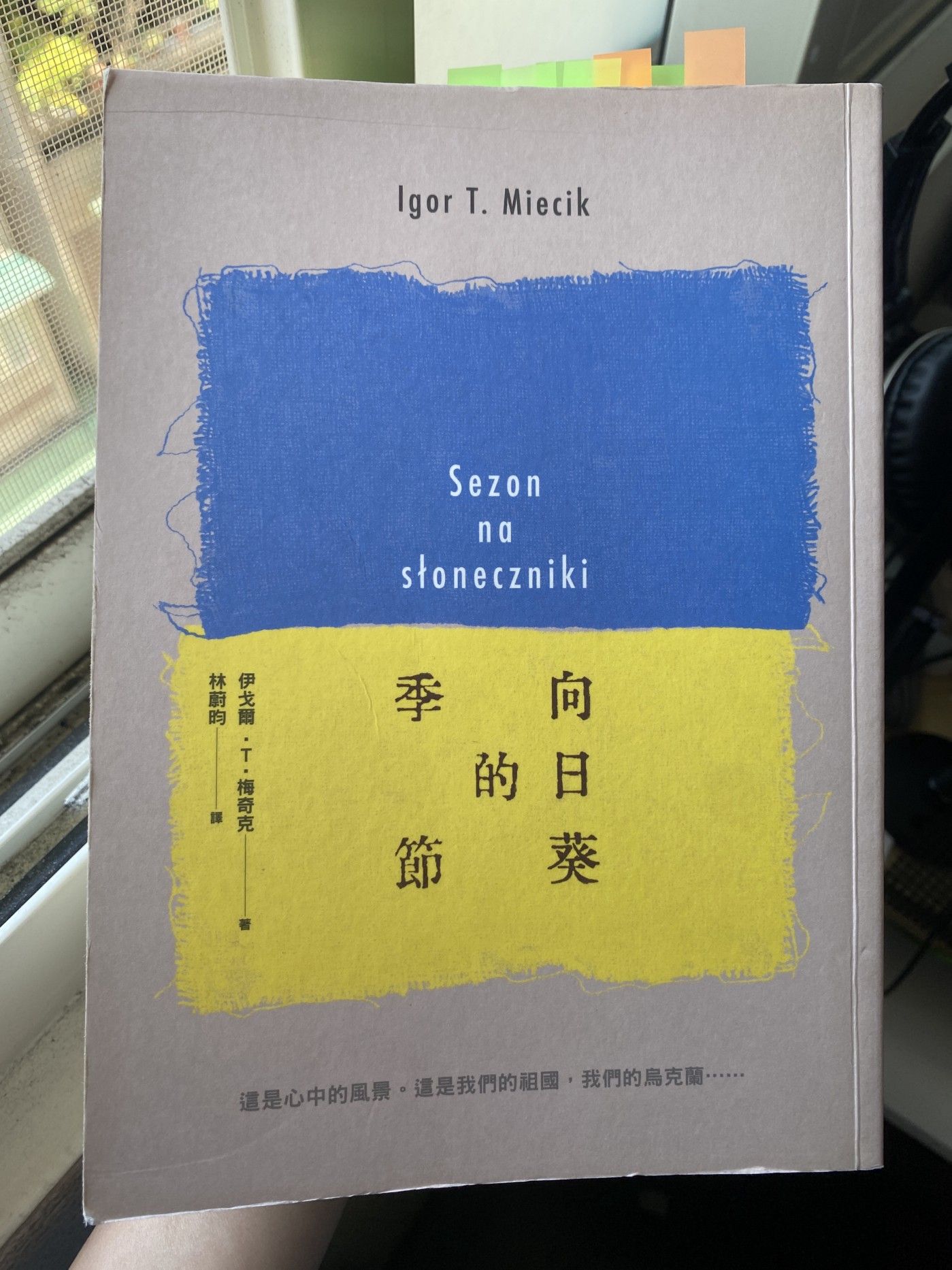
The book contains not only direct contacts and interviews, but also people's oral narratives supplemented by existing video materials, bringing out a deep perspective and the causal relationship between the revolutionary momentum and the rise of "voluntary armies" in various places: in the tenth chapter . Chapter "Female Prisoner", Nadia, the first Ukrainian female officer to fly a bomber, went on a hunger strike after being imprisoned by Russia. Her tenacity and military ability attracted everyone's attention. She and her sister did not experience the famine, but their mother would always remember the confiscated two sheep, two horses, eight pigs, fifteen sheep and more than four hectares of land. Their grandfather went to Western Ukraine to make ends meet and could not get on the train. Holding on to the roof for days, ended up being crushed into three pieces under the wheels. They remember the fate of their families and displacement.
When her trial came, the interrogator said "If you were free, what would you do, would you come back here, back to the front?" She said calmly "I don't think I will be free anymore. Russians will shoot me," she said, vowing to protect Ukraine's independence and integrity. She is here because she wants to protect her country from Russian aggression.
Nadia, who devoted her life to the National Army, actually just made a video two weeks before she was captured by the Russian army, accusing the pedantic and incompetent leadership of the military's top leaders: "In our volunteer army, people think about the motherland. , patriotism, country, wholeness, duty. And what is valuable in the army is: money, convenience, comfort, promotion. That's why volunteers do not obey any army commander."
Therefore, in addition to seeing the patriotism and its cost from the life history and subsequent development of a single character, it also explains that many people do not want to trust the regular army and raise another army. On March 13, 2014, the Ukrainian Congress passed a bill on the militia, the Ministry of the Interior has an armed force under the military system.
In the ninth chapter "The Man Who Calls himself Ukraine ", it is described that the "millionaire" capitalist Koromoysky became the governor, and his men drove the car with the bank logo to the city to suppress the degenerate police. The first military detachment under the command of the Ministry of Internal Affairs was established: the Ukrainian Local Defense Battalion Dniepr-1 (Dniepr-1). In Chapter 6 "Volunteer Army ", the Azov, Aidar, Dnieper, Kiev, Donbas, and Svoboda Ukrainian battalions are listed, and they are short of money and equipment. How do they Run a community and raise funds to make a "brand distinction" between yourself and the regular army.
In the interview with the author at the end of the book, we will learn that these civil society groups that raised resources for the volunteer army have spawned more fields, anti-corruption groups, urban social activist groups, and even old-fashioned bicycle lanes. , the park initiative groups, these voluntary organizations "that didn't exist in the past" have survived the first wave of frenzy and continued to reform in their daily lives, "These beginnings, these countries, these social organizations slowly began to connect with each other, forming It created a platform for people to communicate on a plane. It was a phenomenon like this that created the Revolution in Independence Square, and this phenomenon is sure to change Ukraine.”
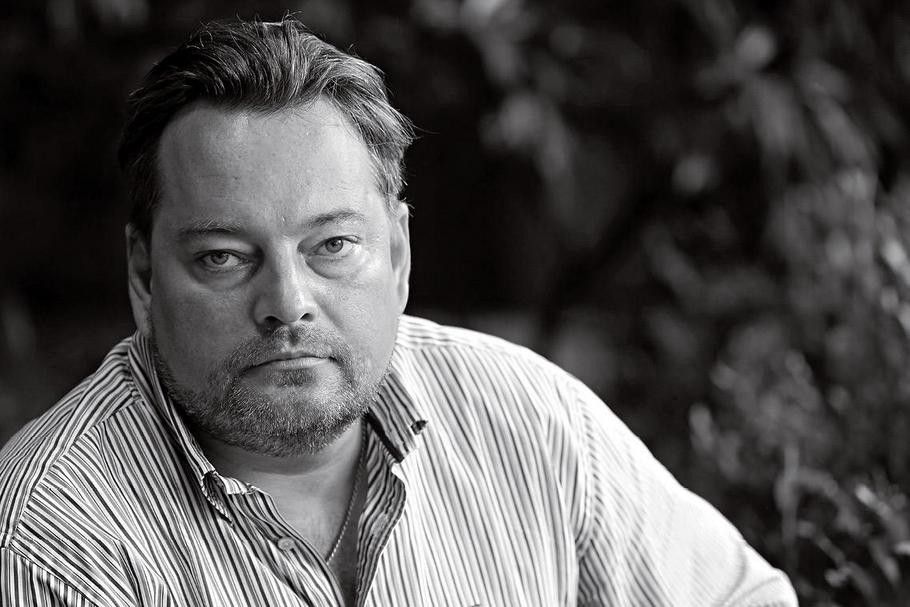
At the same time, the book also has completely different ideologies and caring stances, but both suffer from the suffering of separatism in the Eastern District and have been destroyed by life, with a simple consensus on the identity of the motherland. Chapter 8 "The Candy Fountain " When the author found his distant relative Vadin, he said these words:
"When Ukrainians want to describe this mental or spiritual state, they don't say what the 'Russians' are like, but what the 'Moscow devils' are like, because the Russians are neighbors, brothers, friends. . . . Even if there are many Inner tangle, Ukraine is still a worldview, open, and basically inclusive country. Russia is a multi-ethnic country, but it has no worldview and no tolerance. In Dnipropetrovsk There are many Jews, all of whom have chosen to take Ukraine's side in this conflict, and they are standing firm. Bandera doesn't seem to scare them away."
We saw earlier in Chapter 2 "Vektorial Signs " that there were also people from the right-wing Ukrainian democratic organization in the square. When the author asked in a challenging tone, the blind Shukhevich said after silence:
"Even in cultural circles, our battle was between David and Goliath the giant. Ukrainian only started to gain popularity outside Western Ukraine. Culture promotes the isolation of folk villages. Ukrainian, like traditional clothes with embroidery, is a countryman's clothing, and Russia, as everyone knows, is Dostoyevsky, Chekhov, Tchaikovsky , Rublev, Mendelev, Tretyakov Gallery, ballet in the Bolshoi Theater, space adventures. The same authoritarian rule and contempt we can feel from the Poles. I repeat, when It's not easy being a Ukrainian nationalist..."
And when the author enters their "den" restaurant, he even encounters people with undisguised anti-Semitic tendencies, who say that even though they are against the use of violence against Jews, they still feel that they should avoid doing business with them, etc. His friends like to use similar words with different meanings in Ukraine and Russia to compare the level of the two ethnic groups. They are the people who despise the government's regular army the most, but they are also the people who are most willing to be on the front line, able to outnumber enemies and organize troops spontaneously.
But going back to the author's distant relative, Waddin, we can see moral sympathy for separatists from a different perspective:
"If the people of the Donbass turned away from Ukraine, they did it not for political reasons, but for economic reasons. They were always there clamoring to defend the east from the fascists and Banderaists in the west Invasion, this is bullshit, it's propaganda. If someone has a house and a garden, a good-paying job, some spare money in the bank, a good school for their kids - he won't pick up a rifle. If you say, in People in Donbass are not starving, people in Kyiv can declare Bandera a saint, people in Donbass don't think about it at all. However, for the past twenty-five years - that is, since the founding of Ukraine - The people of Donbas have always been on the verge of poverty. When a man has nothing to lose, he takes up arms.”
The author's writing is interspersed with his own family history, as well as the interviewee's first-person narrative. He did not hide his own feelings and positions, but restrained and cleverly let the interviewees become the main body of the book. This kind of human nature, which is dented by historical contradictions and military strength, allows the Ukrainian people to coexist with many differences. Through this book, people's "positions" and their situations are presented in a three-dimensional and complete manner.
In the first half of the book, we use the self-narratives of a large number of interviewees and the author's skillful change of pronouns to facilitate readers to enter the interviewee's world as if watching a documentary. The author hardly narrates historical information and local cities Rather, it entrains food cultures such as beetroot soup, canned food, mulberries on the ground in the dialogue, and prioritizes the complexity of political and military positions through dialogue. The author is Polish, but his family grew up in the Donbass region, where he also spent his holidays. In the first chapter, "The Hunt ", he quotes a question from his mother before the interview:
"Isn't it a symbol of the three sisters who grew up in the Donbass, one chose Russia, one chose Ukraine, and the third chose Poland?"
In the last few chapters, it returns to the brutality of the war that people have to face, and the "room without sunshine" where the people of the separatist-controlled areas are struggling to live. Parents who fled from the front line cling to the windows to prevent their children from seeing the appearance of corpses outside, but the children went out on a day without artillery fire and saw bloodless corpses falling from the sky like cannonballs. The woman whose house was burnt down, her property all tied up, her husband lost his job, and the woman who ran away with her child not knowing where her next meal would be, is still being pursued for her mortgage. In the shelter, there is a group of children who are reluctant to leave their cramped little room and come out to eat because they think it is their shelter "My dolls will get hurt!"
In the appendix "Lucy Left Her Baby To Fight", Tetina Ilyhwa Sushkina, a child psychologist at the nursery, said that mention of war is forbidden in the institution, but children make up stories. In fact, it is normal for children to make up stories, but there, the stories made up by children are all related to the war. They teach their children that violence is bad, but they see people taking ATMs off walls, looting shops, walking around with guns and firing, without asking, "No one caught these uncles, no one Punish them. Not only that, everyone fears them, everyone salutes them and listens to them”. The educator asked himself , "What are these kids going to think of us?"
In Chapter 13 "A Room Without Sunshine ", the woman in the nursery, in Marinka, witnessed a government official calling himself the Donnetsk People's Republic, telling the child how beautiful Russia was and how beautiful Russia was. Everyone was brought to Russia, and the adults were quite nervous. The next day, the "officials" took the dean away with guns to his temple, and then questioned the adults one by one if they wanted to go with them. Angela Chenako, a young woman working in a nursery, was also pointed at a rifle by an angry man who smelled of vodka. "I was scared, but I told him: I'm going to stay in Ukraine."
They later escaped with their children, she recalls:
"We went to Vinnitsa. There is a chocolate museum in President Poroshenko's chocolate factory. When we visited the museum, we met a group of Peng children from the central Ukrainian city of Kremenchug. Among them were One girl, when she knew where we were from, she and her friend started making a fuss about us from the Donetsk People's Republic, that we were separatists. It made me very, very sad. But Then I thought: What do you know? You never had to look at an angry, drunk, man with a rifle and choose your country in front of him. And I had to! I made my choice too ! 」
On February 25, 2022, I bought the last copy of "Sunflower Season" in Xinyi Eslite. In the week before that, foreign-language media on mobile phones often popped up notifications, and soon after, maps appeared, and one place after another was marked with red dots. Phone notifications jumped more often, and I'll never forget these place names again. If it weren't for the war and the massive media coverage, maybe when I was reading this book, I would have been troubled by the fact that I couldn't remember these translated place names, and it would be impossible to forget them at this time.
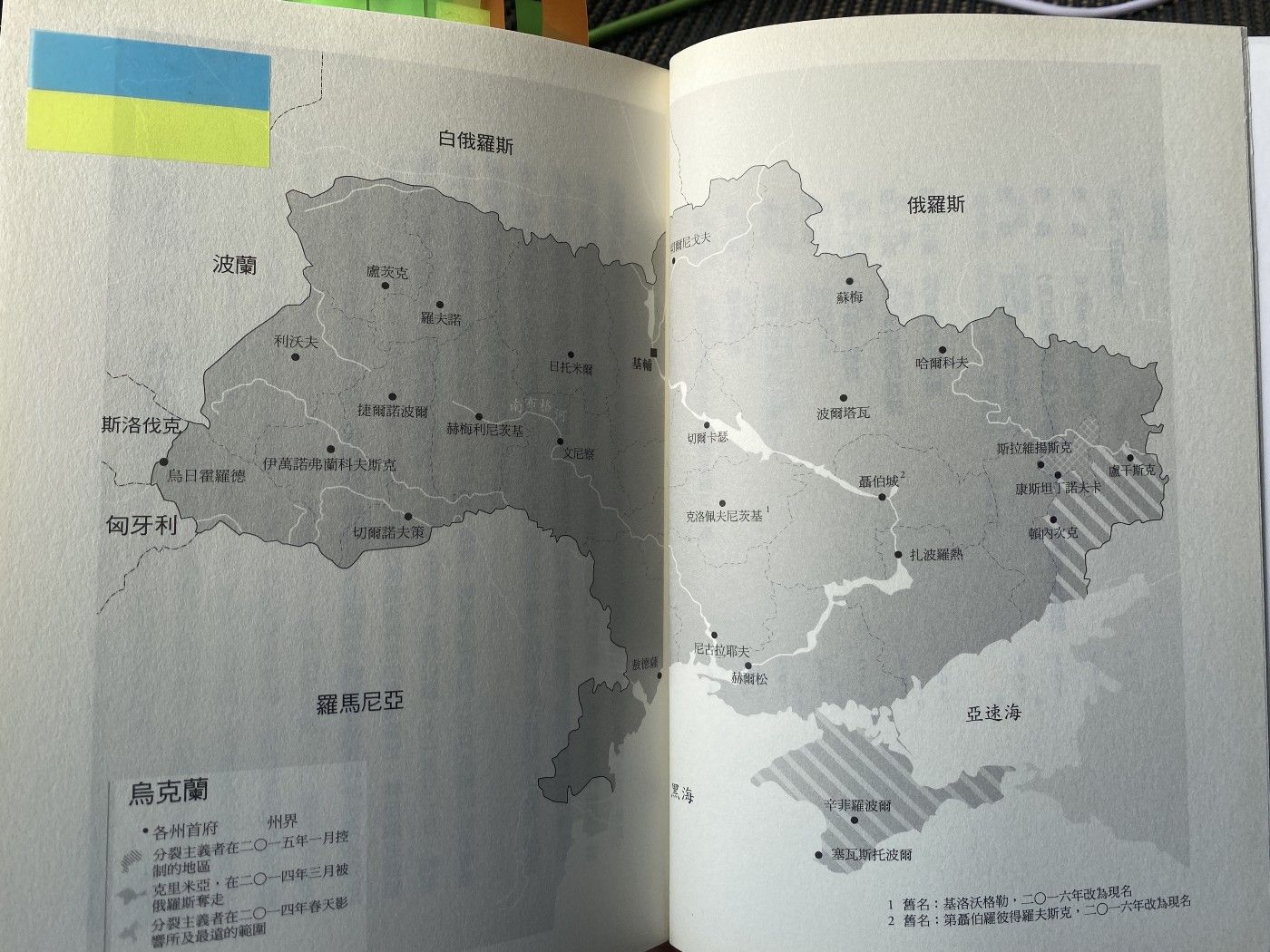
The Seasons of the Sunflower, pp. 318, 319, 320:
Their story is typical. In June, they pack their summer clothes into a travel bag and head to the beach for shelter. They rented a cabin and waited there. The rainy season has begun. They wait. The first snow fell...
"We can't even go home to get something," Oleksi said. "In our hometown, in Justinovatoye, my wife and I are on the death list. The separatists have our addresses, our names. , know what we look like, if we go back and be found by them, we will be shot."
"My profession is an engineer, a construction worker. During the Soviet era, when I was still in university, I joined the Ukrainian People's Movement, the first organization that supported Ukraine's independence. After that, for a long time I was a Member of the All-Ukrainian Union "Freedom". I have participated in two parliamentary elections. On Independence Day, I hold parties and demonstrations under the statue of Shevchenko. My wife also participated in the Ukrainian People's Movement, where we met Yes. For 20 years she has taught Ukrainian at a technical college of miners in Donnetsk and has organized many patriotic campaigns in schools and in the city.”
"At that time, in 2012, no one could have imagined what would happen in Merdeka. But in our city, bad things started to happen to people. "
“In Donetsk, Ukrainian newspapers went out of business one after another. The popular café Lviv — where Viennese coffee was served and the waiters took orders only in Ukrainian — is now a dead end.”
“People are talking about patriotism more and more often, but they are not talking about Ukrainian patriotism, but Donbas patriotism. From the beginning, it was anti-Ukrainian, pro-Russian patriotism, established On top of nostalgia for Soviet times and blatant separatism."
"There is a general complaint that the Donbass is being used by Ukraine. The Donbass feeds the whole country, the Donbass is a unique place, different from the rest of the country, oppressed by other places. People don't even anymore Use the original popular term 'Eastern Ukraine'."
" When Crimea broke away from Ukraine, I knew that there was going to be blood in the Donbass. Young Ukrainian patriots protested, and the police called hooligans to terrorize them. If this didn't work, the police would Will stand shoulder to shoulder with those thugs and beat patriots together.”
" I don't think we'll go home again. Even if the separatists step down, we won't go back. Our eldest daughter, Yarosva, is twenty-four years old, already working, and is about to graduate from Kharkov. After graduating from university, she has a house and a husband there. She will give birth in three months. The second daughter, Svetlana, is going to go to university next year, and she wants to study chemistry at Kiev University. If my wife and I go back Where to go, and why to go back? To die? Ukraine has been overwhelmed by a wave of cruelty, violence all year, and I'm sure the hatred will run high after that wave - when we go back to Hometown, back to Yustin Novatoye, we will meet people who kill us with a good heart. If not before the troops of the Donnetsk People's Republic, or in the dark puddles. We will Killed like a dog, even if Donnetsk returns to Ukraine."
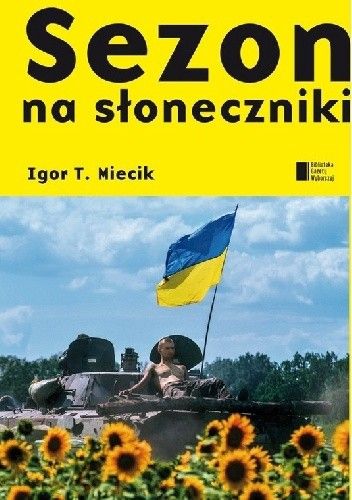
The original Polish version of "Sezon na stoneczniki" was published in March 2015, and the Taiwanese translation "Sunflower Season" was published in September 2017. This article was written on February 28, 2022. Ukraine is fending off the fire of Russian aggression, and countries around the world are turning to a more active policy direction to assist Ukraine. Today is Taiwan's Peace Memorial Day, commemorating those killed and wounded by the repression by the Nationalist government of the Republic of China in 1947. Taiwan is joining the rest of the world in sanctioning Russia and supporting Ukraine.
Like my work?
Don't forget to support or like, so I know you are with me..
Comment…